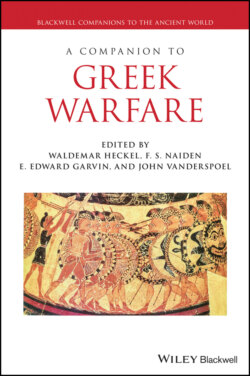Читать книгу A Companion to Greek Warfare - Группа авторов - Страница 43
Conclusion
ОглавлениеTheir victory in the Persian Wars ushered in a series of internal wars that plagued the Greek city-states for the next century and a half, rendering them unstable and ultimately unable to mount an effective defense against a new external invader. For much of the fifth century, the division of the Greek world into two power blocs, with Sparta the acknowledged military leader by land and Athens by sea, provided a modus vivendi. Eventually, however, Athens’ openly imperialistic behavior and territorial aspirations began to cause alarm among Sparta’s allies, leading inexorably to the outbreak of the Peloponnesian War. The 27-year length of the war not only left both Athens and Sparta in considerably weaker positions but permanently altered the balance of power in the Greek world. In the fourth century, no individual state had the resources to achieve long-lasting hegemony, and Greece became increasingly fragmented and subject to short-lived alliances of convenience. An ongoing series of inconclusive internal wars ensued, fostered by the Persians (whose goal was to keep the Greeks disunited and therefore unable to recover the Greek cities of Asia Minor), which left the Greeks vulnerable to conquest in 338 by the capable and ambitious Philip of Macedon. Ironically, it was Philip who united the fractious Greek city-states under his leadership, forcing them to come full circle in his planned campaign against Persia (eventually carried out by his son Alexander the Great), where they would be revenged for their suffering during the Persian wars.
